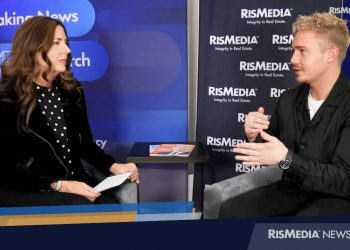RISMEDIA, February 16, 2009-Question: What three words do people least want to hear in the middle of a recession? (Besides “You’re laid off,” that is.) Answer: “It’s tax time!” Yes, by now you should have your W-2 in hand, and you’re already dreading having to file. Tax season isn’t all bad news, says financial counselor and bestselling author Eric Tyson. Even if you’re not expecting a fat refund check, the looming presence of April 15 can inspire you to make some changes that will keep more of your cash out of the clutches of the IRS-now and in the future.
“Many people have had a tough year,” says Tyson, coauthor along with Margaret Atkins Munro and David J. Silverman of Taxes 2009 For Dummies® (Wiley, 2009, ISBN: 978-0-470-24951-2, $17.99). “Americans have faced job losses, pay cuts, foreclosures, and constricting budgets, and now, here comes Uncle Sam with his hand out! But the good news is that a smart tax strategy can help you keep more money in your pocket right now when you need it most.”
Tyson has some advice that will allow you to cross “taxes” off of your list of worries and even help you put some money back in your pocket right away.
Here are a few of his tips:
Revisit your withholdings. Do you dread April 15th because it means you have to dole out a huge check to pay your tax bill? Or maybe you have to skimp and save throughout the year but then get a big tax refund when you turn in your taxes? Either way, you need to adjust your withholdings. You can do so by filling out a Form W-4-one of the many forms you filled out on your first day at your job and probably haven’t thought about since-and turning it into your employer. You’ll see an adjustment in how much you’re bringing home on your paycheck within a month.
“If you or your spouse has recently lost a job, changing your withholdings might put some extra money in your pocket-especially if one of you has been withholding too much,” says Tyson. “Just be sure that your withholding matches your tax liability. Adjusting your withholding just so you get more out of a paycheck isn’t a good idea if you’re not prepared to pay the bigger tax bill when your taxes come due next year.”
Be a fast filer. Too many of us get our W-2s just after the new year begins and hold on to them until we finally file a week or two into April. You can file now and have refund money in your bank account within a few weeks. Thanks to e-filing, there is absolutely no reason to wait until April 15th. If you e-file either by using a website or DIY taxes computer software, you can set up your refund so that it is direct deposited into your bank account.
“Usually, your refund money will go into your account in about ten days, great news for cash-strapped households who are making the most of every penny right now,” notes Tyson. “The flipside, of course, is that if you know you are going to have to write a check to the IRS, you might as well wait as long as possible to file, because you can hold on to the money just a little longer.”
Keep an eye on the new stimulus package. (And if it passes, hands off the tax credit!) The new stimulus package is still being knocked around the halls of Congress, and if it passes, there may be some beneficial tax credits coming your way. The bill proposes that singles receive a $500 payroll tax credit and married couples receive a $1,000 payroll tax credit.
“Just be sure that you spend it wisely,” says Tyson. “It’s easy to look at these kinds of stimulus checks as free money and spend the cash on something we want rather than need. But in the down economy, you’re probably better off rolling the money into your IRA or using it to make a safe, long-term investment. In this way you can make that check go much further than a new flat screen TV.”
If you’re thinking about buying your first home, now might be a good time to take the plunge. Home ownership has always yielded tax benefits for smart, sensible buyers. And if the stimulus package passes, there’s a little something in it to sweeten the pot: a proposed tax credit of $8,000 to first-time homeowners or those who haven’t owned a home in the last three years. Right now this opportunity extends to homes purchased before July 1, 2009.
“While I would never recommend that anyone make such a big decision for tax benefits only, I do feel that if you’re financially and emotionally ready to buy, now is the time,” says Tyson. “Property prices and mortgage rates are low and of course your interest on mortgage payments is tax deductible. The fact that you might get the tax credit is just icing on the cake.”
It can’t be said too often: Fund your retirement. When you funnel your savings dollars into retirement accounts, such as a 401(k), 403(b), SEP-IRA, Keogh, or IRA, you can earn substantial upfront tax breaks on your contributions. Tyson says you might even consider investing your tax refund check there. And please, he adds, don’t let worries about the stock market’s ups and downs dissuade you from making smart, long-term investments now.
Investigate itemizing. If you’ve looked at itemizing your taxes as too much trouble in the past, now is the year to start. You might be surprised what a difference spending a little more time on your tax return can make. The IRS gives you two methods of determining your total deductions and you get to pick the method that leads to the largest total deductions-and the lowest tax bill. But sometimes the choice isn’t so clear, so be prepared to do some figuring. Taking the standard deduction usually makes sense if you have a pretty simple financial life-a regular paycheck, a rented apartment, and no large expenses, such as medical bills, moving expenses, or loss due to theft or catastrophe.
“The other method of determining your allowable deductions is to itemize them on your tax return,” says Tyson. “The painstaking procedure is definitely more of a hassle, but if you can tally up more than the standard deduction amounts, itemizing saves you money. Schedule A of your 1040 is the page summing up your itemized deductions, but you won’t know whether you have enough itemized deductions unless you give this schedule a good examination.”
Invest in your health: HSAs help you keep thousands of dollars away from Uncle Sam every year. Health Savings Accounts allow you to put away money for a rainy day and reduce your taxes. If you are unfamiliar with how HSAs work, here are the basics: An HSA savings account, which is paired with a high-deductible health plan, empowers you to save on a tax-free basis toward current or future unreimbursed medical expenses. If you get sick and haven’t met your deductible, the funds in your HSA can be used to pay it off. Once your deductible is paid, your insurance plan will kick in and cover any subsequent medical costs under your policy, but your HSA can still be used to pay for your co-pays and any non-covered healthcare expenses.
“Single people can contribute $3,000 to an HSA and families can contribute $5,950,” says Tyson. “That means depending on your status you can reduce your taxable income by $3,000 or $5,950 in a given year. If you normally have your tax refund deposited into your IRA, but would like to deposit some of the money into your HSA, you can now choose to have your refund split between as many as three accounts. It’s a great way to make the U.S. tax system work for you.”
“In this down economy, no one wants to send any more than necessary to Uncle Sam,” says Tyson. “But it’s not just a matter of the dollars you’ll save; it’s psychological. Doing what you can during tax season to hold on to more of your money will help you manage some of the anxiety you’re feeling as you try to make ends meet in 2009. Any small, money-saving step that helps you feel more in control is one worth taking.”
About the Authors:
Eric Tyson, MBA, (www.erictyson.com) is one of the nation’s best-selling personal finance book authors and has penned five national bestsellers (he is also the only author to have four of his books simultaneously on BusinessWeek’s business book bestseller list). His Personal Finance For Dummies (Wiley) won the Benjamin Franklin Award for the Best Business Book of the Year. He is also the author of Investing For Dummies and coauthor of Home Buying For Dummies and Real Estate Investing For Dummies, among other titles.
David J. Silverman, EA, has served on the Advisory Group to the Commissioner of Internal Revenue. David has a Certificate in Taxation from New York University and has been in private practice in Manhattan for more than twenty-five years. He regularly testifies on tax issues before both the Senate Finance Committee and the House of Representatives Committee on Ways and Means.
Margaret Atkins Munro, EA, is a tax advisor, writer, and lecturer with more than thirty years of experience in various areas of taxation and finance with a mission in life to make taxes understandable to anyone willing to learn. Her practice is concentrated in the areas of family tax, small business, trusts, estates, and charitable foundations.










